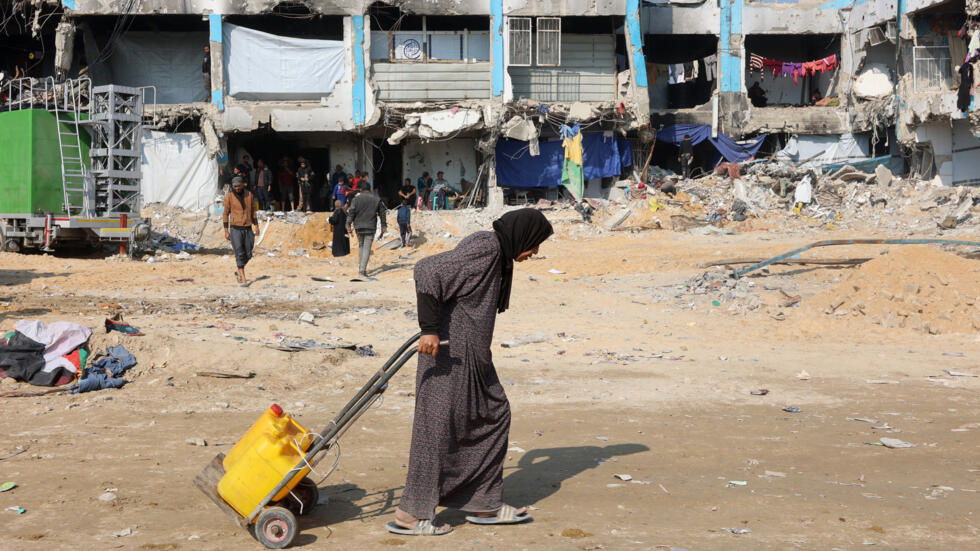News Flash
News Flash

RAFAH, Palestinian Territories, Feb 4, 2025 (BSS/AFP) - Like most Palestinians, Hatem Azzam, a resident of the southern Gaza city of Rafah, was incensed by US President Donald Trump's remarks suggesting Gazans should relocate to Egypt or Jordan.
"Trump thinks Gaza is a pile of garbage -- absolutely not," the 34-year-old said, attacking Trump's choice of words when he told reporters last week of his plan to "clean out the whole thing".
Calling him "delusional", Azzam said that Trump "wants to force Egypt and Jordan to take in migrants, as if they were his personal farm".
Both Egypt and Jordan have flatly rejected Trump's idea, as have Gazans and other neighbouring countries.
Azzam's outrage comes as Trump and Israeli Prime Minister Benjamin Netanyahu are set to meet in Washington later Tuesday and discuss plans for the Palestinian territory ravaged by more than 15 months of war.
"Trump and Netanyahu must understand the reality of the Palestinian people and the people of Gaza. This is a people deeply rooted in their land -- we will not leave," Azzam told AFP.
Ihab Ahmed, another Rafah resident, deplored that Trump and Netanyahu "still don't understand the Palestinian people" and their attachment to the land.
"We will remain on this land no matter what. Even if we have to live in tents and on the streets, we will stay rooted in this land," the 30-year-old said.
Ahmed told AFP that Palestinians had learned lessons from the 1948 war that followed the British mandate, when hundreds of thousands of Palestinians were chased from their homes at the creation of Israel, and never allowed to return.
"The world must understand this message: we will not leave, as happened in 1948."
-'Owners of this land'-
Standing near crumbling buildings blocks destroyed by war in the northern Gaza city of Jabalia, Raafat Kalob is concerned about the consequences that the Trump-Netanyahu meeting will have on his life.
"I expect Netanyahu's visit to Trump to reflect his future plans to forcibly displace the Palestinian people and redraw the Middle East," he said.
"I sincerely hope this plan does not succeed."
Behind him, rows of tents provided by charity organisations line a patch of land at the foot of concrete buildings whose facades still bear marks of war: bullet holes, blown away windows and facades stripped of their stone finishing.
In Jabalia and Gaza's north, areas that were particularly hard-hit by the war, displaced Palestinians who returned after a ceasefire took effect on January 19 have taken residence in tents next to their destroyed homes.
Some were nevertheless optimistic, like Majid al-Zebda, a 50-year-old resident of Jabalia.
Trump "will pressure Netanyahu to end this war" permanently, he said.
The first phase of the ceasefire brought a fragile end to fighting in Gaza and started the process of a hostage and prisoner exchange between Israel and Hamas, but negotiations have yet to begin for a permanent end to war.
Zebda, a father of six who lost his home in the war, said neither he nor any Gazan would leave the coastal territory.
"We are the owners of this land; we have always been here, and will always be. The future is ours," he said.